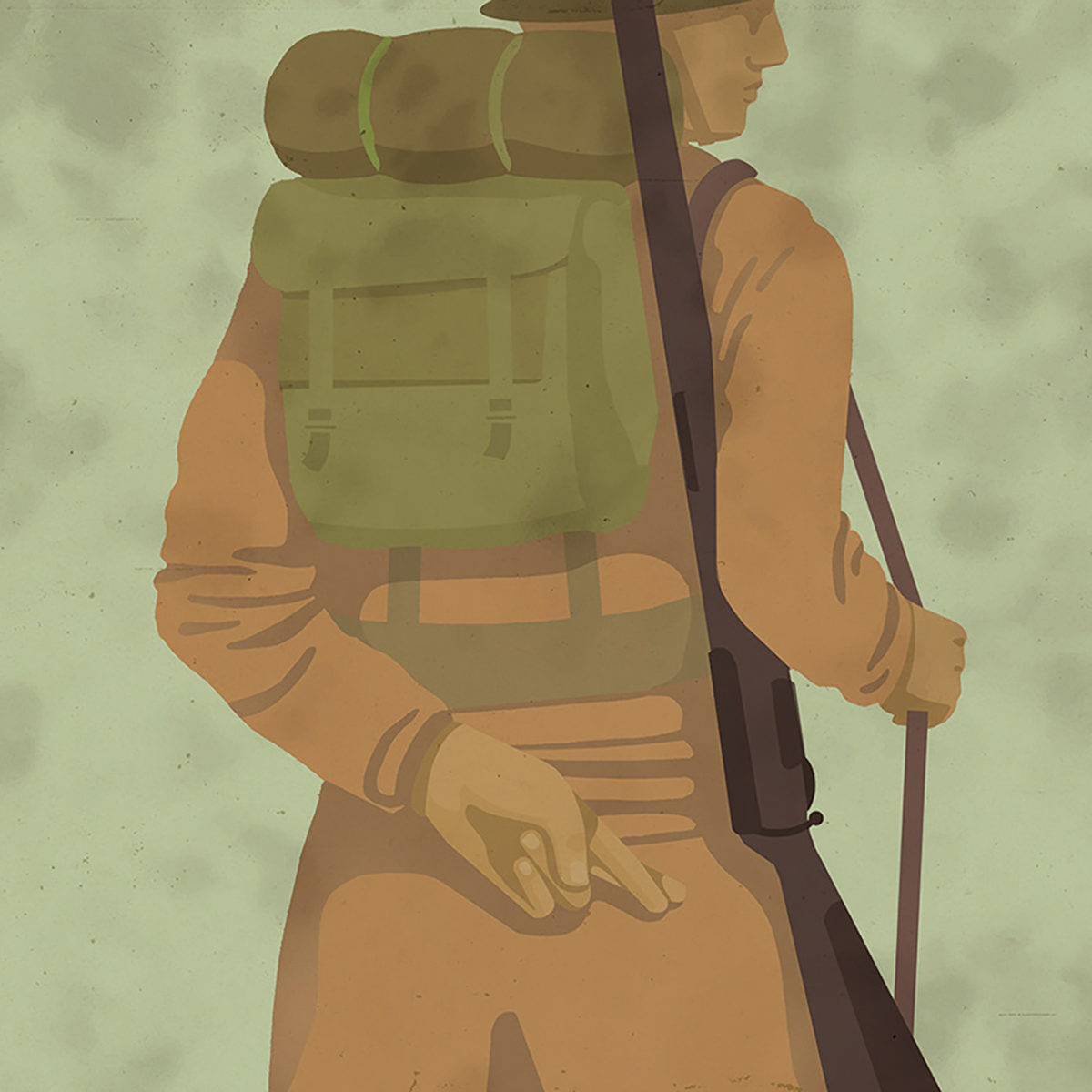I’ve been staying on a small Greek island, and from the house I’ve been able to look across the wine-dark sea to the distant blue mountains of Epirus in the northwest part of mainland Greece. It’s hard not to think of Odysseus sailing these waters, but my thoughts also turn to the Greek tragedy of the war years, a dark period in the nation’s history, if ever there was one.
Epirus witnessed the Italian invasion in late October 1940, the Greek counterattack, and then the German invasion a few months later. It also saw not only guerrilla activities but civil war, between the Communist-organized ELAS and the more liberal but anti-monarchy EDES partisan movements. Hundreds of thousands of civilians were killed during those years, and thousands—literally—of villages were wiped from the face of the earth.
The Allies, and the British especially, also played their part in Greece’s war: first, sending some 48,000 British troops plus a handful of Royal Air Force planes when the Germans and Bulgarians invaded in April 1941. The Germans swept all before them in a matter of weeks, the British hastily evacuated, and, thereafter, their involvement continued in the form of the Special Operations Executive (SOE).
SOE agents infiltrated Greece with little understanding of what was going on internally. Guidelines from London were to incite armed resistance against the Axis, but also to promote loyalty to the exiled Greek king—even though, for all the different politics within Greece, one unifying factor was a growing desire to get rid of the monarchy.
The SOE in Greece, led by Major Eddie Myers, soon began to understand the complex and immense challenges they faced, and navigating these tricky waters swiftly led to some uncomfortable moral compromises. One of SOE’s roles was to sabotage Axis supply lines, but another, in the summer of 1943, was to persuade the Germans and Italians that Greece was the main target for an imminent Allied invasion, rather than Sicily, the real objective. That meant also persuading theELAS and EDES partisans that Greece was about to be invaded. In other words, they had to dupe their allies into believing something they knew to be wholly false. The consequences of Operation Animals—blowing up bridges, attacking Axis troops and locomotives—were the roundup of Greek civilians, summary executions, and the destruction of villages. Many Greeks lost their lives in an effort to make the Axis believe the Allies intended to land in Greece and not Sicily.
Much has been made of these deception measures, especially with Operation Mincemeat, the British plan to ditch a body into the Mediterranean with incriminating papers attached that pointed to an Allied invasion first of Sardinia, then of Greece. The story has just been adapted into a film with all the hyperbole of changing the course of history one would expect from a movie release.
It’s true two German divisions were sent to Greece, but this was more in anticipation of the imminent Italian collapse: there were some 750,000 Italian troops throughout Greece and the Balkans that would need replacing should Italy drop out of the war. In truth, Hitler was convinced Greece would be the next target because he was paranoid about the Allies taking the Ploesti oil fields in Romania, and an Allied attack in Greece seemed to give them the best chance of achieving that. But Albert Kesselring, his senior commander in the Mediterranean, and the Italian high command, Mussolini included, all assumed the Allies would attack Sicily, because it was so blindingly obvious. Only Sicily allowed the Allies fighter cover from bases in North Africa, a prerequisite for such an amphibious assault. Operations Animals and Mincemeat reinforced what Hitler already believed and dissuaded no one else that the target would be Sicily.
Fortunately today, the mountains of Epirus are altogether more peaceful, but gazing across the sea I can not help wondering about the nature of the moral crusade on which the Allies embarked during the war. For the cause of right, yes, but with a number of moral conundrums along the way, of which duping the Greeks was just but one.






